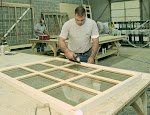The other day someone listed value engineering as a skill that I possess on the Linkedin network and it made me cringe. I really have no desire to be associated with what that term has come to stand for over the years. What was originally drafted as an expression used to define the process of truly adding value to a construction project has morphed into a phrase that instead describes unseemly behavior in our industry.
I find the term value engineering has become abused over the past twenty years to the point where it now has a pejorative context. The term essentially has evolved to the point where it is now a way to put a positive spin on slimy behavior in the industry. Just as prostitutes are now sometimes called escorts, the construction industry now calls manipulating the design intent value engineering.
This term originally defined the process whereby the construction team works in a collaborative way to tackle design and economic challenges for a project. When one combines the efforts of the architect, general contractor, subcontractor, and manufacturer in a coordinated and concentrated effort, good things can happen. The cost of a project can be reduced sensibly through effective communication within the construction team. My company has always found success in connecting the players to address challenging issues where the result truly adds value to the project. Unfortunately, the term value engineering has been predominantly used to cover up negative behavior in the construction industry to the point where the expression functions more like lipstick on a pig.
Several decades ago, I used to relish the opportunity to be considered a participant in value engineering. To be considered an engineer without the degree was an honor. I must really be good to have only an MBA but to also be considered an engineer. It’s a similar feeling to what a janitor must get when he is called a custodial engineer. So what has happened over the past 25 years to denigrate the connotation of value engineering?
The problem is that over the past ten years a majority of the commercial projects have bid prices that are higher than their budgets. It is not uncommon to have double-digit discrepancies between budgets and bid day. I think the design community isn’t doing its due diligence in properly defining the budgetary costs of projects. Over the past decade, I have seen a dramatic increase in projects that come in grossly over budget. I would say that over-budget projects are currently at an epidemic. The project that comes in under budget has become the exception. This makes me wonder how the industry could have lost its ability to project costs.
It is my opinion that the state of the economy is largely guilty of contributing to erroneous budgets. Over the past five years, all sectors of the construction industry except for apartment construction have been hammered by the lackluster economy. Architects, contractors, suppliers and manufacturers have been struggling to survive. As is often the case, the survival instinct inspires undignified behavior. When the construction team latches onto an owner who is considering a project, they don’t want to scare away the promise of business with a high budget. All parties are enticed to serve up a rosy low-cost scenario that isn’t based upon reality. And I would submit that many do this intentionally because they know they can value engineer on the backend. Lure the owner into committing funds and then redefine the scope of work after the fact. This behavior is tantamount to the bait and switch strategies employed by retailers for decades.
I also frequently see suppliers and manufacturers submit voluntary alternate proposals that blatantly fail to comply with the construction documents in an effort to garner a sale. The alternate proposal does not meet the specification and often completely changes the form, function, and lifecycle of the intended product. But the unauthorized alternate is 25% less expensive. There are companies that make a living in maneuvering their products through the backdoor of the bidding process. If the project is 20% over budget, one might consider window replacement rather than restoration, or redesign the skylights out of the roof.
Given the fact that all of this slimy behavior exists under the guise of value engineering, I must ask that my Linkedin community please refrain from listing this as one of my skills. Deception, fraud, and manipulation are not skills I want to put on my resume.






No comments:
Post a Comment